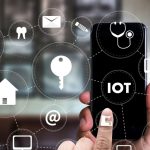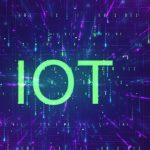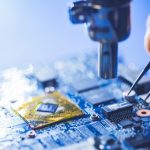In today’s digital landscape, attention has emerged as the most valuable resource, surpassing traditional commodities like oil and emerging assets such as Bitcoin. This shift underscores the pivotal role that capturing and directing human attention plays in driving technological advancements and shaping societal dynamics. As companies innovate to engage users more effectively, the implications for privacy and individual autonomy are becoming increasingly significant.
Over the years, the methods for capturing attention have evolved dramatically. Initially reliant on broad media channels, the focus has shifted towards more sophisticated technologies that interact directly with users’ cognitive processes. The introduction of devices like the iPhone marked a significant change, transforming users into constantly connected entities within a global network. This progression set the stage for the next wave of attention-driven technologies, which promise even deeper integration with human cognition.
How Are New Technologies Measuring Attention?
The Apple Vision Pro represents a significant advancement in attention measurement, utilizing eye-tracking technology to assess users’ focus and emotional states. This device employs a range of sensors to monitor subtle eye movements and pupil fluctuations, providing insights into cognitive load and arousal levels. By eliminating the need for external input devices, the Vision Pro offers a more intuitive interaction with digital environments, enhancing user engagement through seamless integration.
What Are the Privacy Implications of Attention-Tracking Devices?
“Devices like the Vision Pro are subtly grooming society for a future where more invasive technologies may be used to completely subvert human agency.”
The capability to monitor and interpret neural activity for profit raises significant concerns about privacy and individual autonomy. As companies gain the ability to analyze brain activity, the potential for misuse of personal data increases, necessitating robust safeguards to protect user privacy against corporate and governmental exploitation.
What Measures Are Needed to Protect Biometric Privacy?
Establishing a comprehensive biometric privacy framework is essential to address the growing risks associated with attention-tracking technologies. Current regulations like GDPR and CCPA fall short in providing effective protection, highlighting the need for more foundational approaches. Solutions such as Human Keys advocate for individual control over cryptographic keys, enabling secure and private management of personal data without reliance on third parties.
Ensuring the security of biometric data requires not only advanced software solutions but also the implementation of secure hardware based on open standards. Governments play a crucial role in enforcing security practices and ensuring that the infrastructure supporting these technologies is both safe and accessible to the public. By prioritizing these measures, society can better navigate the challenges posed by the attention economy while safeguarding fundamental privacy rights.
A Comprehensive Strategy for Ethical Neurotechnology
The integration of neurotechnology into everyday devices presents both opportunities and challenges. Ethical guidelines and robust privacy protections are necessary to ensure that these advancements empower individuals rather than exploit them. By embedding biometric privacy into digital systems and advocating for open hardware standards, it is possible to harness the benefits of attention-driven technologies while maintaining essential human rights.
Balancing innovation with privacy will determine the trajectory of future technological developments. As attention continues to drive economic and social structures, proactive measures are required to ensure that advancements enhance rather than undermine individual autonomy. The collective effort to establish secure and ethical frameworks will be pivotal in shaping a future where technology serves humanity’s best interests.










